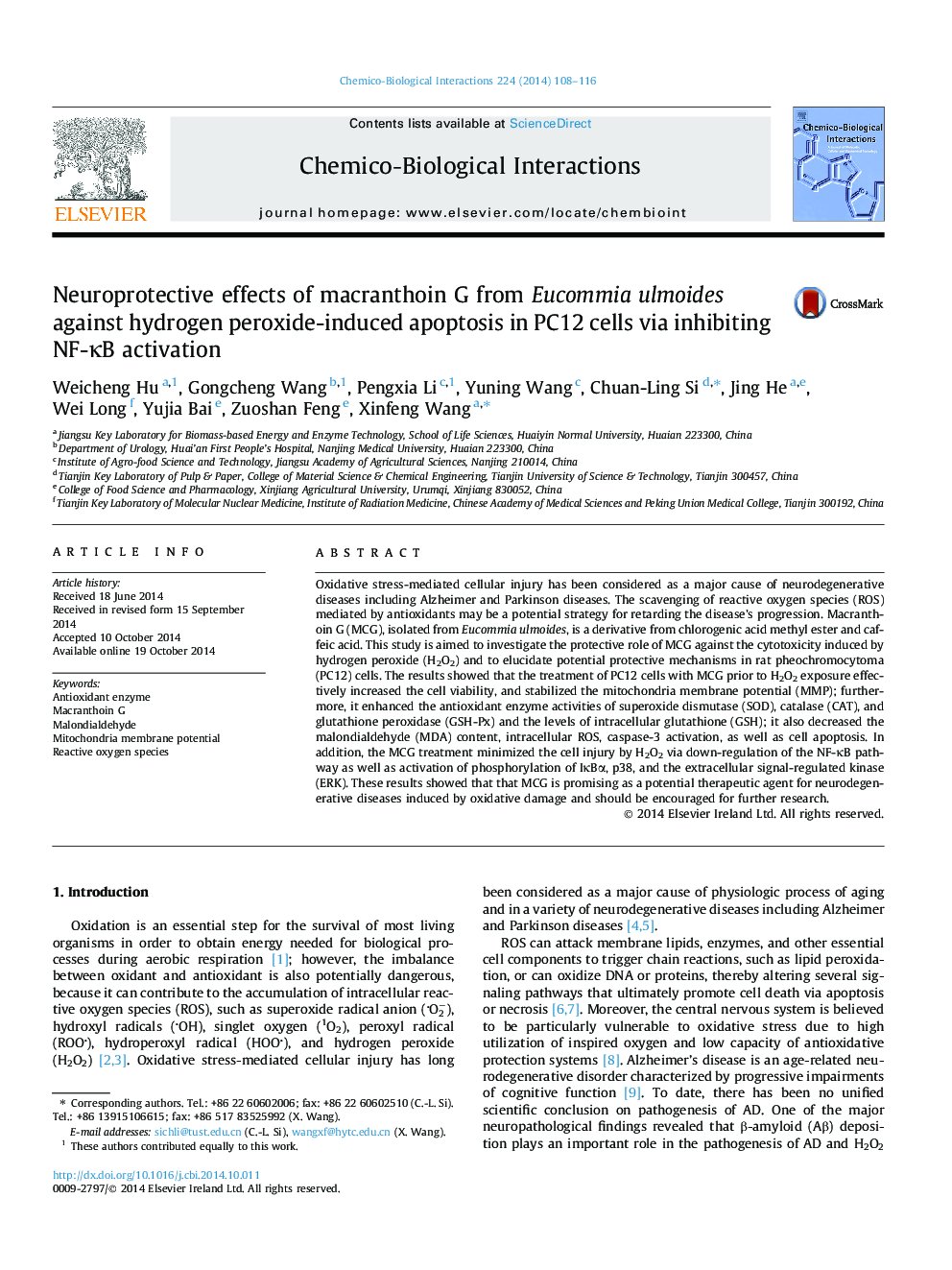| Article ID | Journal | Published Year | Pages | File Type |
|---|---|---|---|---|
| 2580381 | Chemico-Biological Interactions | 2014 | 9 Pages |
•MCG rescued the cell injury by H2O2.•MCG inhibited the H2O2-induced accumulation of ROS in PC12 cells.•MCG protected PC12 cells from H2O2-induced apoptosis in PC12 cells.•MCG inhibited the activation of p38 and ERK1/2 induced by H2O2 in PC12 cells.
Oxidative stress-mediated cellular injury has been considered as a major cause of neurodegenerative diseases including Alzheimer and Parkinson diseases. The scavenging of reactive oxygen species (ROS) mediated by antioxidants may be a potential strategy for retarding the disease’s progression. Macranthoin G (MCG), isolated from Eucommia ulmoides, is a derivative from chlorogenic acid methyl ester and caffeic acid. This study is aimed to investigate the protective role of MCG against the cytotoxicity induced by hydrogen peroxide (H2O2) and to elucidate potential protective mechanisms in rat pheochromocytoma (PC12) cells. The results showed that the treatment of PC12 cells with MCG prior to H2O2 exposure effectively increased the cell viability, and stabilized the mitochondria membrane potential (MMP); furthermore, it enhanced the antioxidant enzyme activities of superoxide dismutase (SOD), catalase (CAT), and glutathione peroxidase (GSH-Px) and the levels of intracellular glutathione (GSH); it also decreased the malondialdehyde (MDA) content, intracellular ROS, caspase-3 activation, as well as cell apoptosis. In addition, the MCG treatment minimized the cell injury by H2O2 via down-regulation of the NF-κB pathway as well as activation of phosphorylation of IκBα, p38, and the extracellular signal-regulated kinase (ERK). These results showed that that MCG is promising as a potential therapeutic agent for neurodegenerative diseases induced by oxidative damage and should be encouraged for further research.
